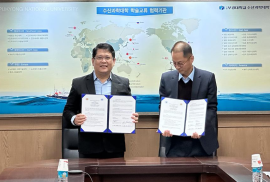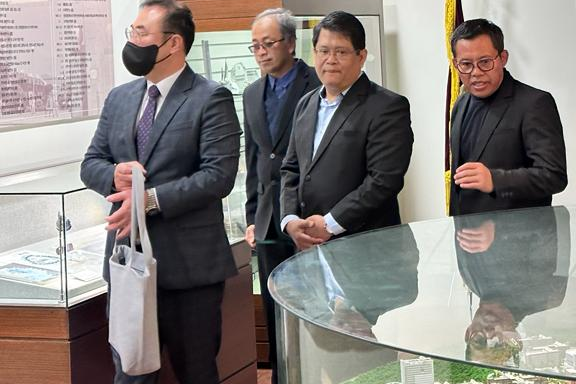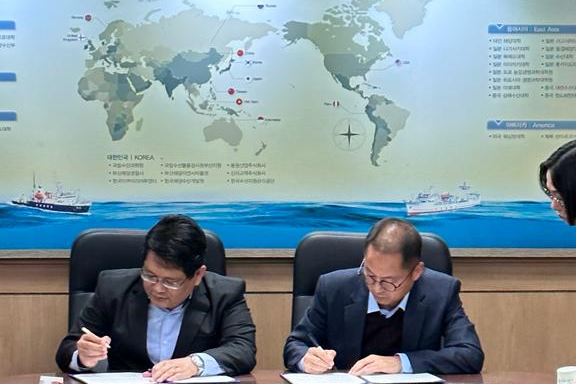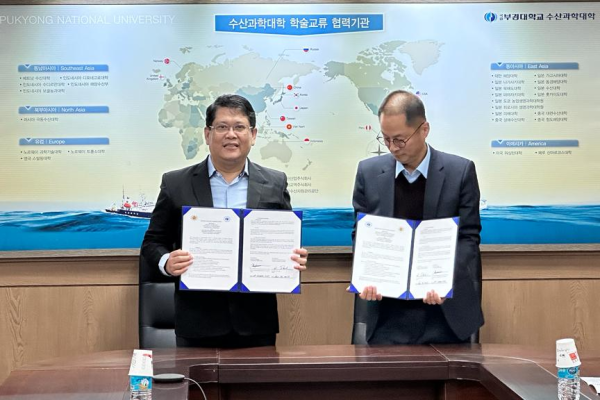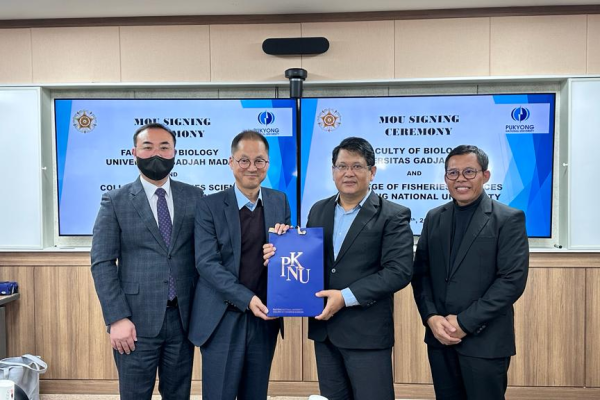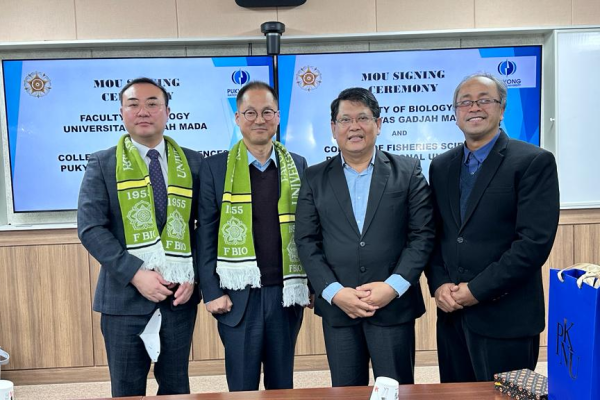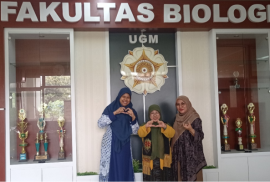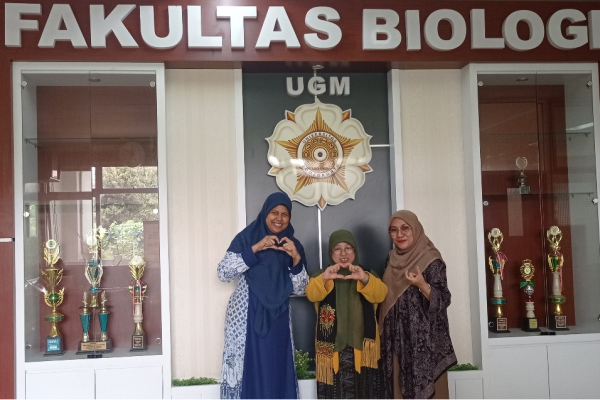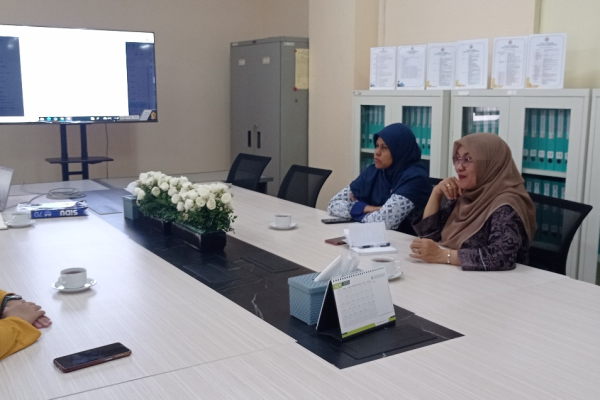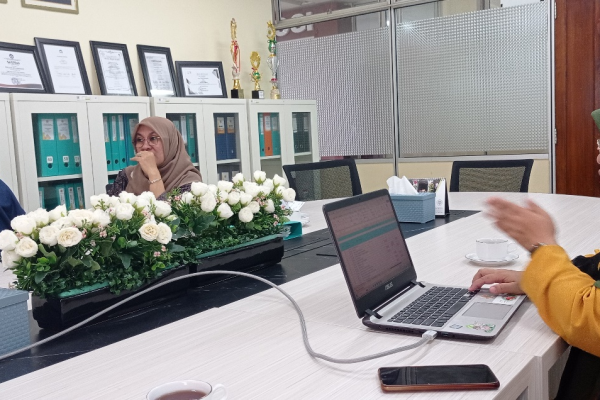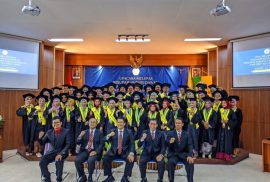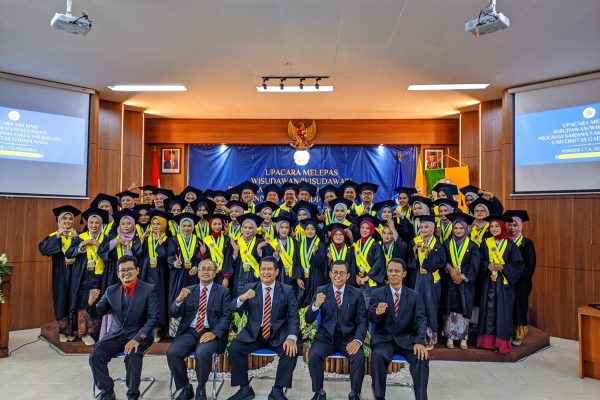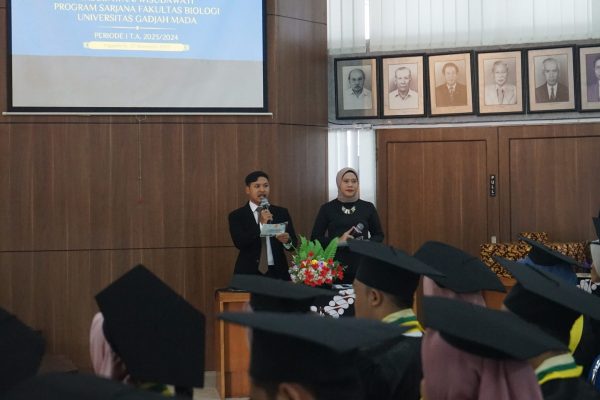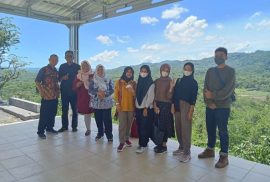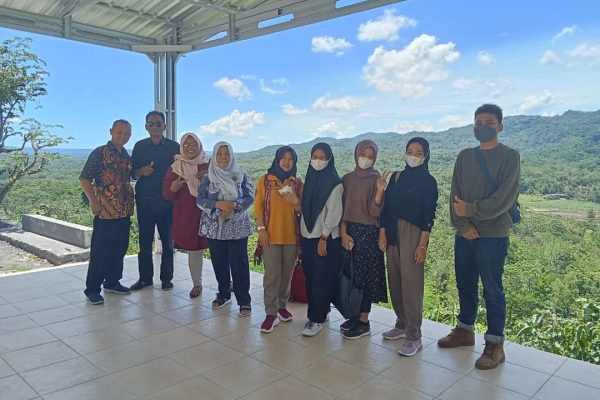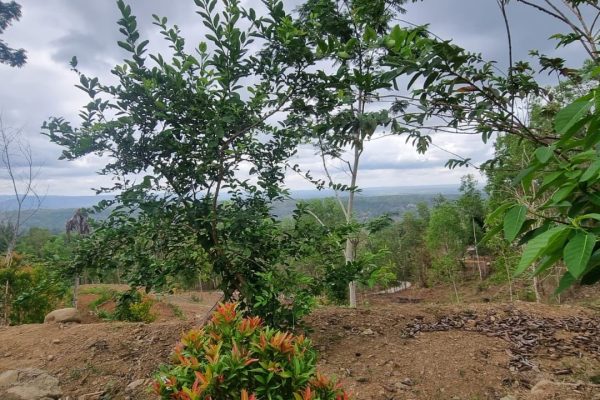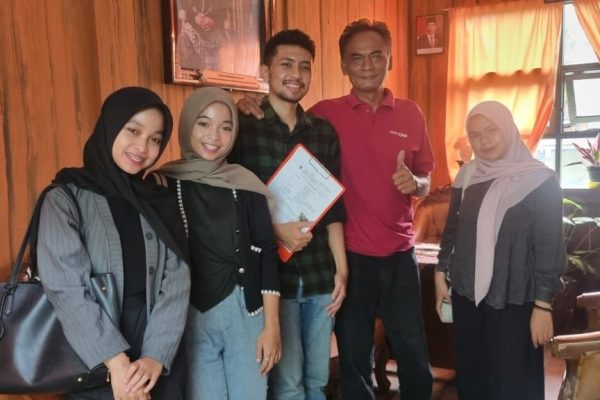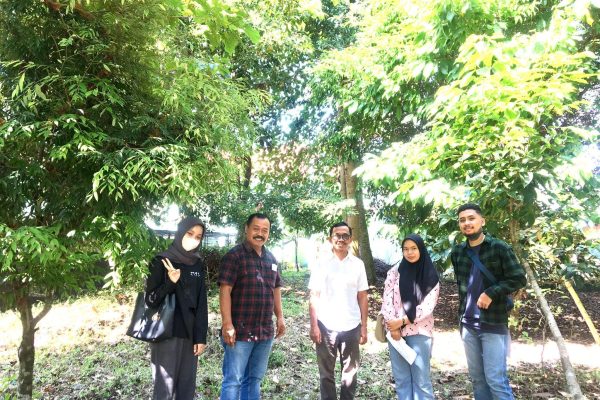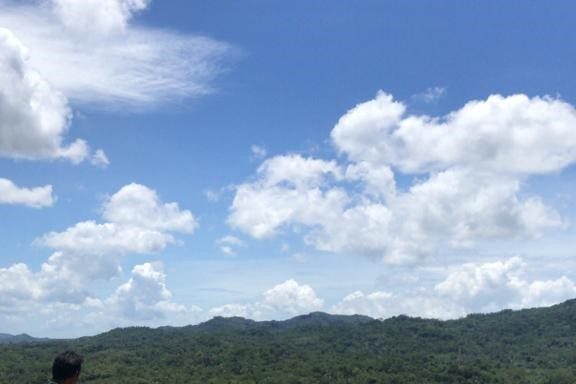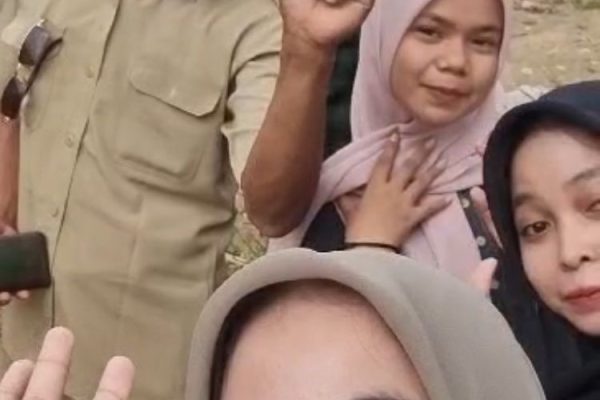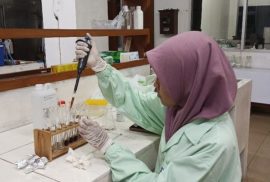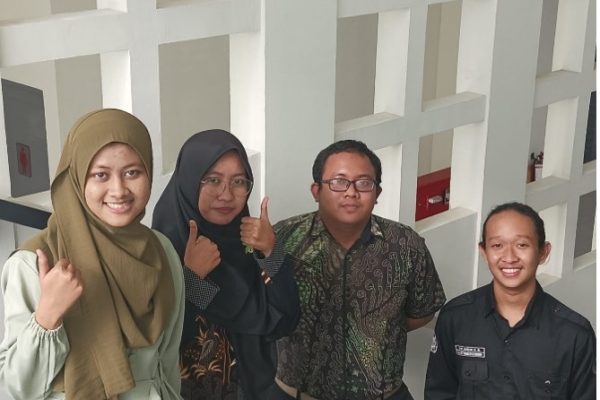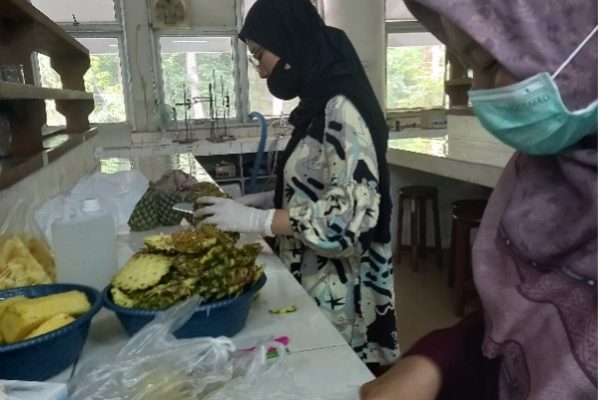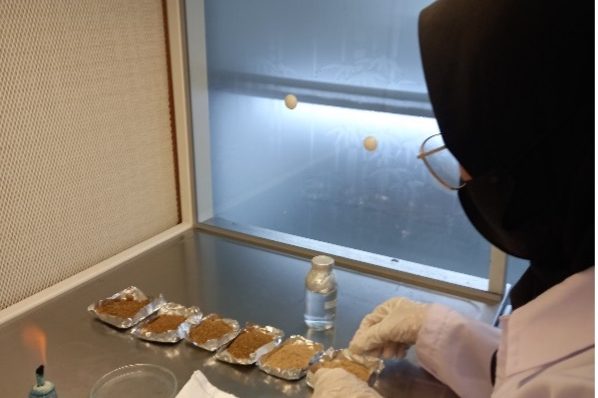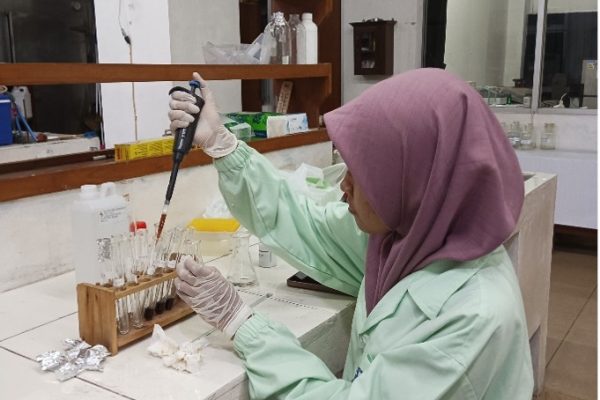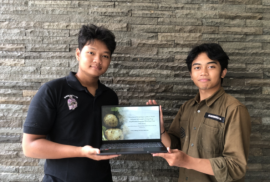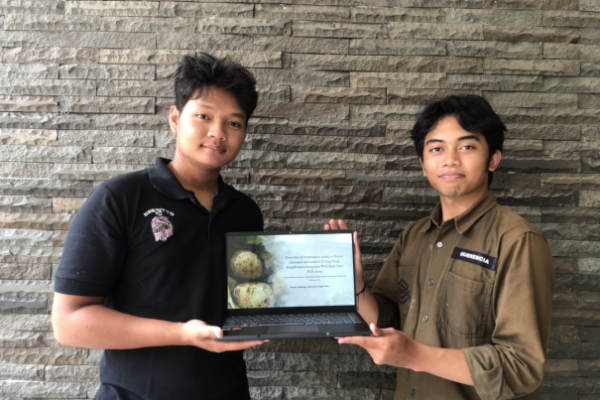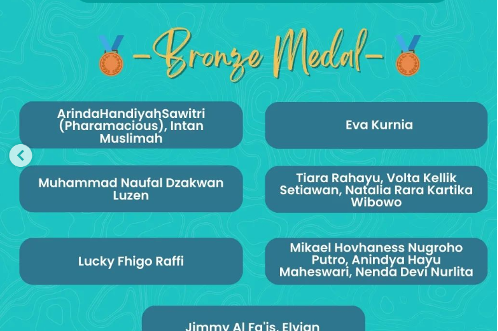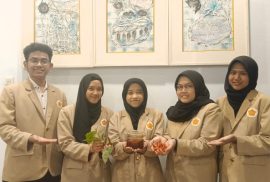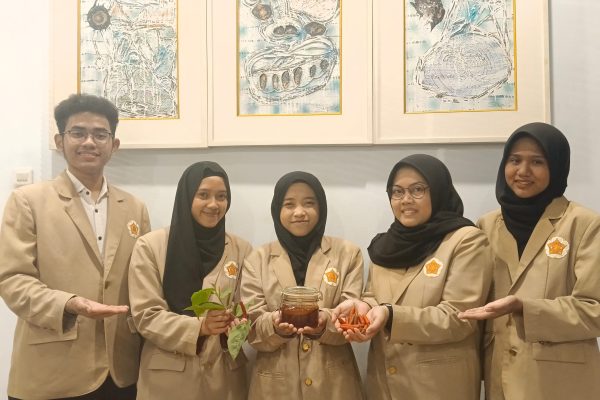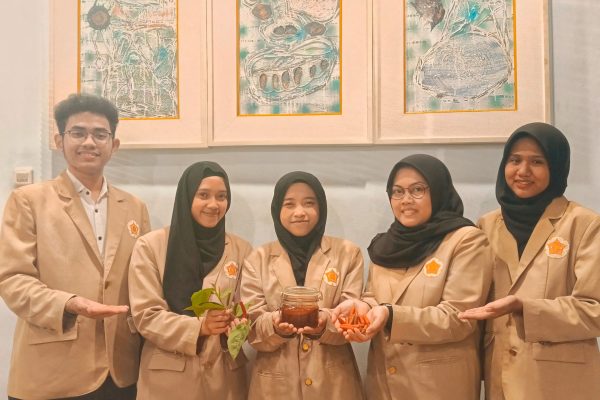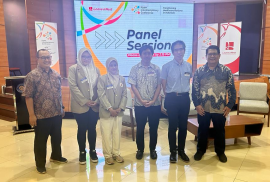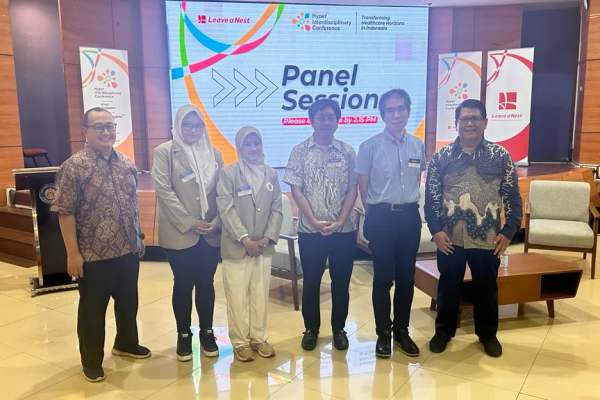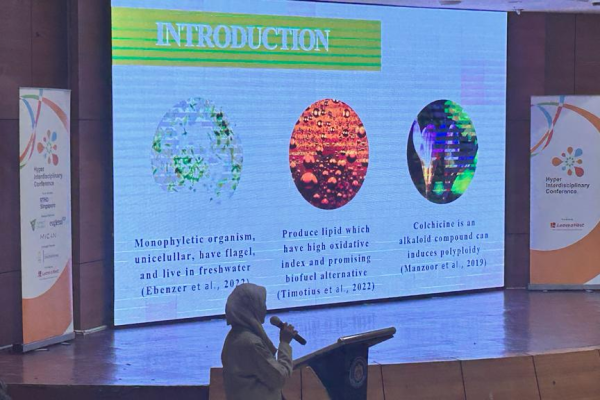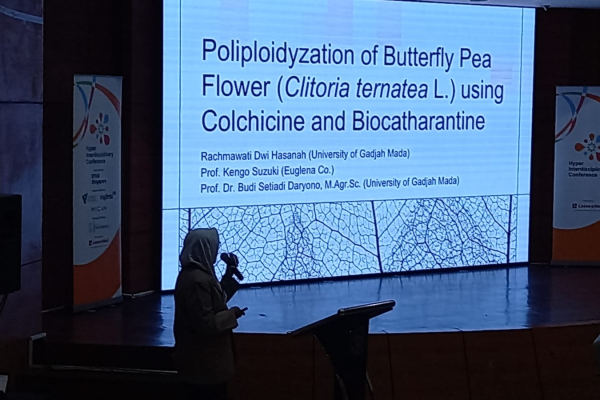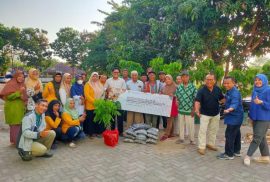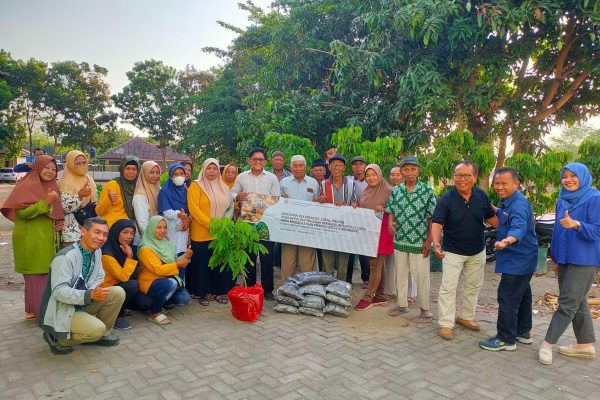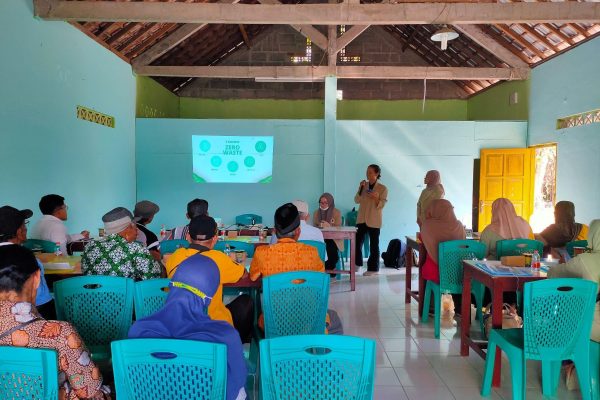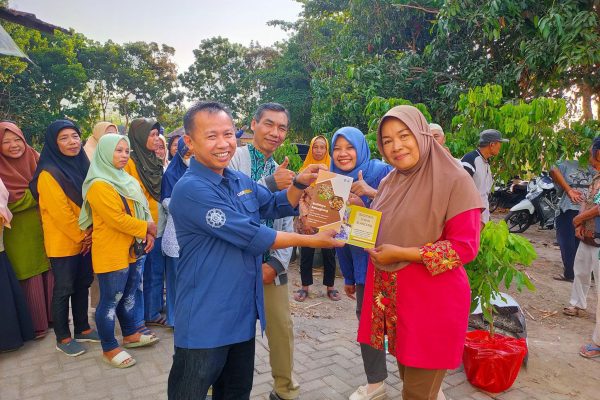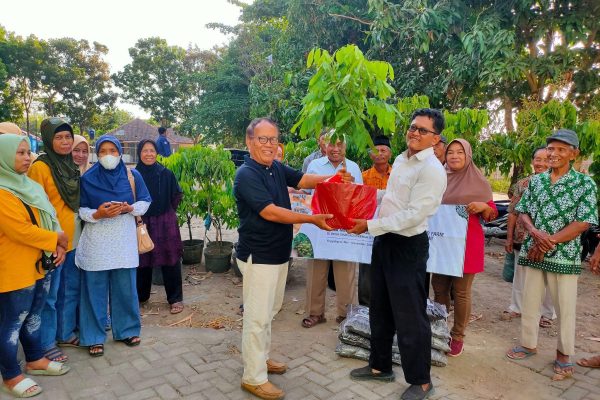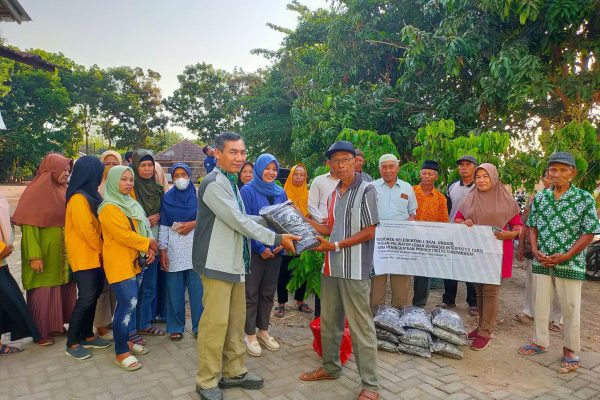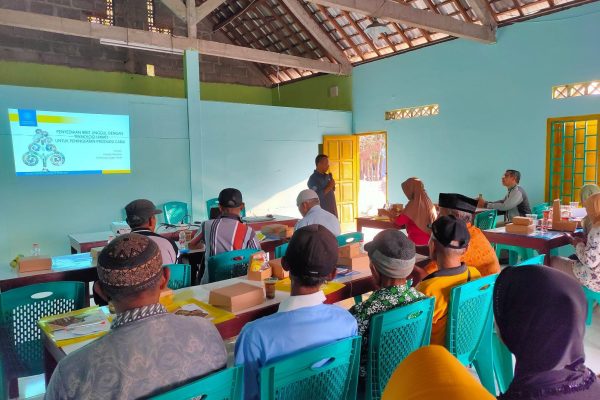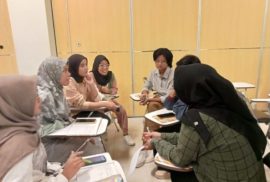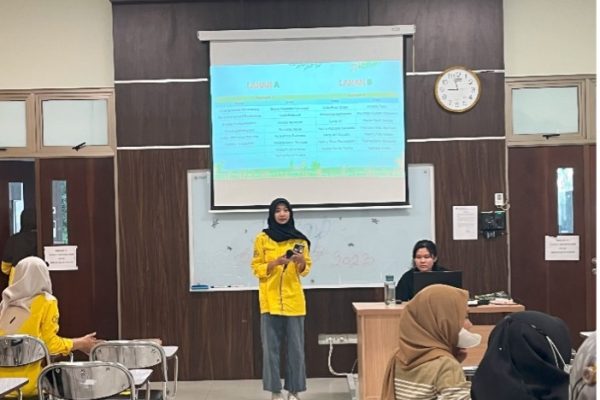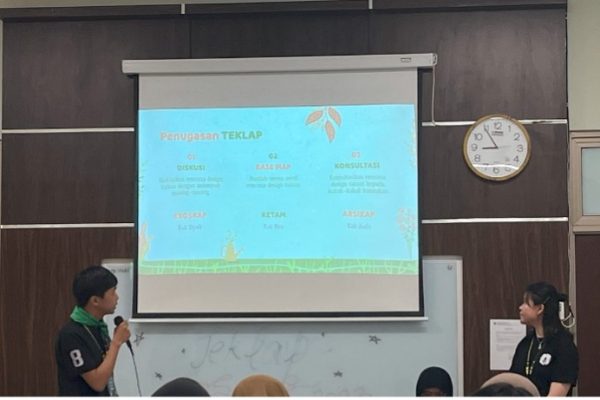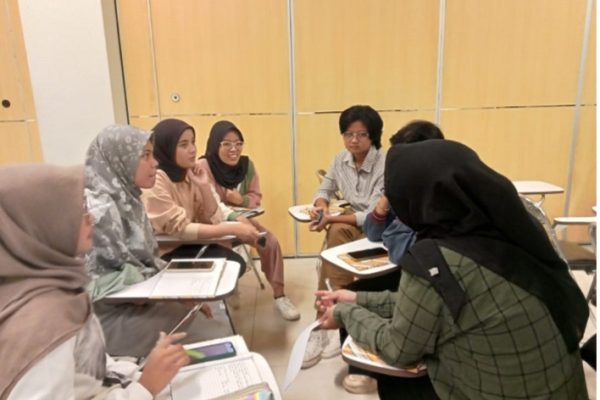The Faculty of Biology’s is initiating and establishing collaboration with Pukyong National University (PKNU) at South Korea, as one of commitment to increasing international cooperation, as outlined in its support for Sustainable Development Goals (SDG 17) and the enhancement of inclusive and high-quality education (SDG 4). The aim is also to compete with the world’s best institutions world wide.
Pukyong National University (PKNU) is a national university located in Busan, South Korea, with two campuses in Daeyeon-dong and Yongdang-dong, near the coastal district of Nam-gu. PKNU focuses on fisheries science and other marine-related fields, boasting extensive facilities for Marine and Technology studies. The College of Fisheries has long been a driving force in advancing fisheries science and aquaculture since its establishment in 1941. The Faculty of Fisheries Science has globally contributed to the progress of fisheries science through research and theoretical and technological studies covering all aspects of the field. This potential has motivated the Faculty of Biology at UGM to collaborate with PKNU.
The delegation from the Faculty of Biology at Gadjah Mada University (UGM), which included Prof. Dr. Budi Setiadi Daryono, M.Agr.Sc., Dean of the Faculty of Biology at UGM, Dr. Bambang Retnoaji, Vice Dean for Academic and Student Affairs, and Dr. Slamet Widiyanto, M.Sc., Vice Dean for Finance, Assets, and Human Resources, visited Pukyong National University (PKNU) on November 20, 2023. The delegation was hosted by Prof. Wong Gyu Park, Ph.D., Dean of the College of Fisheries, and Prof. Sang Gil Lee, Ph.D., Vice Dean for Academic Affairs. The meeting began with the signing of a Memorandum of Understanding (MoU) and continued with the exchange of souvenirs. The purpose of the visit was to identify opportunities and sign agreements in the fields of education and research between the Faculty of Biology at UGM and the College of Fisheries Science at PKNU. The main focus of this collaboration includes student mobility, joint publications, research cooperation, double degrees, and other forms of collaboration. The Faculty of Biology delegation toured PKNU’s advanced research facilities, gaining a deep understanding of the potential for research collaboration.
Prof. Dr. Budi Setiadi Daryono, Dean of the Faculty of Biology, stated, “We are delighted with the opportunity for collaboration through this visit and believe that this partnership can bring significant benefits to both institutions.” Dr. Bambang Retnoaji added, “The signing of this MoU is a crucial first step in strengthening the relationship between the Faculty of Biology at UGM and Pukyong National University. We hope to develop joint initiatives that can enhance the quality of education and research at both universities.” Dr. Slamet Widiyanto also mentioned that this collaboration is expected to open new opportunities for students and researchers at both universities, broadening their knowledge through the exchange of information and experiences.
The Faculty of Biology at UGM received a benchmarking visit from the Master in Environmental Management Study Program, Syiah Kuala University on Thursday, November 23, 2023, in the context of the ASIIN (Accreditation in Engineering Computer Sciences Natural Sciences Mathematics) accreditation for master program. The visit was conducted in the Senate meeting room at the Faculty of Biology, UGM, and was attended by Prof Dr. Ichwana, ST., MP as the head of The Master in Environmental Management Study Program, Syiah Kuala University and team. From the Faculty of Biology, UGM, there was Dr.rer.nat. Andhika Puspito Nugroho, S.Si., M.Si. as the head of the Master in Biology Study Program and Zuliyati Rohmah, M.Si., Ph.D. Eng. the Head of the Quality Assurance Unit Faculty of Biology, UGM.
The delegation from the Master in Environmental Management Study Program, Syiah Kuala University visited with the aim of benchmarking ASIIN accreditation at the Faculty of Biology to enhance the quality of education at their institution. The Faculty of Biology at UGM has been accredited by ASIIN since 2023 for the Master in Biology Study Program. Furthermore, the Faculty of Biology has been elevating the quality of education and teaching on an international scale through collaborations with various world institutions for programs such as student exchange, double degree programs, and research cooperation.
Discussions regarding ASIIN accreditation continued with the presence of Zuliyati Rohmah, M.Si., Ph.D. Eng. the Head of the Quality Assurance Unit at the Faculty of Biology to address ASIIN in general, as well as Outcome Based Education (OBE) and assessment, where ASIIN assessment focuses on student-centered learning processes. This visit is expected to support strong collaboration between the Master in Environmental Management Study Program, Syiah Kuala University and the Faculty of Biology, UGM, in line with the institutions’ commitment to supporting Sustainable Development Goals (SDGs) for inclusive quality education (SDG 4) and fostering good collaboration (SDG 17) to enhance the quality of education in Indonesia.
Wednesday, 22 November 2023 The Faculty of Biology, Universitas Gadjah Mada, held a Graduation Ceremony for the Bachelor Program 2023/2024 period I at the Tropical Biology Auditorium, Faculty of Biology. This ceremony was held at 01.00 p.m. and was opened by the Dean of the Faculty of Biology Prof. Dr. Budi Setyadi Daryono, M.Agr.Sc. and continued singing Indonesia Raya, Hymne Gadjah Mada, and Mars Faculty of Biology.
Then, there is a report of graduates by the Head of Undergraduate Study Program by Mr. Sukirno, S.Si., M.Sc., Ph.D. In his report he said that there were 45 graduates in this period with the academic title Sarjana sains or Bachelor of Science with Honours. Then, the highest GPA was obtained by Bunga Finovel Angellya, S.Si. with a value of 3,90. One of graduates who received the Bachelor of Science with Honours title is Faizah Diah Retnowati B.Sc Hons.
Next, there is a reading of the graduates graduation results. Furthermore, there was a speech by representatives of the graduates Bunga Finovel Angellya, S.Si. . She congratulated their fellow graduates and encouraged them to reminisce about their college days.Followed by remarks from the parents’ representatives by Bunga Finovel Angellya, S.Si. Parents. He expressed gratitude to the professors and the entire staff who accompanied them throughout the learning process. He also conveyed to the graduates the importance of not just being spectators in the future but being active participants.
Next, there is a reading of the graduates graduation results. Furthermore, there was a speech by representatives of the graduates Bunga Finovel Angellya, S.Si. . She congratulated their fellow graduates and encouraged them to reminisce about their college days.Followed by remarks from the parents’ representatives by Bunga Finovel Angellya, S.Si. Parents. He expressed gratitude to the professors and the entire staff who accompanied them throughout the learning process. He also conveyed to the graduates the importance of not just being spectators in the future but being active participants.
The continued with pin awarding as a sign of membership in the Faculty of Biology Family by the Head of the Tropical Biology Department, Abdul Razaq Chasani, S.Si., M.Si., Ph.D., represented by graduates Angga Bintang Narzassi, S.Si., and Faizah Diah Retnowati, S.Si., followed by other graduates. Following that was a speech by the Dean, Prof. Dr. Budi Setiadi Daryono, M.Agr.Sc. In his speech, he conveyed that education is the primary tool to change the world. He also expressed that UGM Biology graduates are equipped to pursue careers, further studies, or other endeavors. The Dean concluded by thanking the committee for the success of the graduation ceremony and shared a message wishing success to the graduates in their future endeavors. Towards the end of the event, graduates presented mementos to the Dean. Before concluding the event, a prayer was recited by Dimas Cahyo, S.Psi. The ceremony was then closed by the Dean at 14:50 WIB. [Author: Della Thasya Liona Safitri]
[PkM- MBKM] Four students from the Faculty of Biology, Universitas Gadjah Mada—Agastyo Pakusadewo Suwardi, Ririn Febrina Putri, Sherlina Oktavian Putri, and Sherlita Oktavian Putri—engaged in the Community Service of the Independent Learning Independent Campus (MBKM) from February to November 2023 in Kedungpoh Kulon Hamlet, Kedungpoh Village, Nglipar Subdistrict, Gunung Kidul guided by Ludmilla Fitri Untari, S.Si., M.Sc., and Dwi Yono (the head of Kedungpoh Village) as partners in the MBKM Community Service.
Kedungpoh Village comprises 10 sub-villages with a total area of 10,799,830 hectares, located in the northern region of Gunungkidul. Despite being hilly, this area relatively has more abundant water compared to the southern regions of Gunungkidul. In line with the Regional Government of Gunungkidul’s policy to develop the northern region as a new tourist destination, Kedungpoh Village has also aimed to establish itself as a tourist village with a vision of a prosperous, resilient, and prosperous community. One of the development plans for Kedungpoh Village is the establishment of Indonesian Rare Plant Eco-Tourism in Kedungpoh Kulon Hamlet. The development of “Kebun Biologi UGM II” not only serves as an effort in land conservation and disaster mitigation but also aims to develop Eco-Tourism based on a Mini Indonesian Rare Plant Botanical Garden.
During the MBKM activities, the students conducted various tasks, including characterizing and identifying various rare endemic plants in the Yogyakarta region and its surroundings, as well as plants with potential. To obtain these plants, the students collaborated with the Forestry Instrument Standard Testing Center (BBPPBPTH) and the personal collection of one of the lecturers from the Faculty of Forestry, Universitas Gadjah Mada, namely Dr. Ir. Nunuk Supriyatno, M.Sc.forest trop. According to Ludmilla Fitri Untari, S.Si., M.Sc., the supervising lecturer, this initiative marks the initial step toward preserving the diversity of rare plant species in “Kebun Biologi UGM II” located in Kedungpoh Kulon Hamlet. The ex-situ conservation of these rare plants can support the government’s program in conserving natural resources for sustainable development (EfSD) and, as a result, enhance the welfare of the local community through locally potential-based eco-tourism, namely the mini botanical garden (UGM Biological Garden II). It can also enhance the capacity of the local community in cultivating plants in Kedungpoh Kulon. It is hoped that this MBKM activity can contribute to the conservation of rare plants and establish Kedungpoh Village as a tourist destination with a vision of a prosperous, resilient, and prosperous community.
Colon cancer originates from the longest part of the large intestine. Its incidence ranks third worldwide, and it is projected to increase by 63% by 2040. However, current treatments for colon cancer, including surgery, radiotherapy, and chemotherapy, tend to cause high toxicity and yield unsatisfactory results. Developing a safer treatment for colon cancer with minimal side effects remains a challenge. This issue motivated five UGM students, part of the PKM-RE Team that qualified for PIMNAS 2023—Atikah Nurunnissa’, Anisa Dewi Rahayu, Lathief Al Umami, Ilma Tazkiya, and Dwi Ardyan Syah Mustofa from the Faculty of Biology, along with their supervising lecturer, Woro Anindito Sri Tunjung, S.Si., M.Sc., Ph.D., to explore natural substances as a safer alternative for colon cancer treatment.
Anisa explained that pineapples are abundant in Indonesia, ranking fourth among the world’s largest pineapple producers. The core, skin, and crown of pineapples contribute 50% of the total weight of the fruit. Surprisingly, these parts contain phenolic compounds, terpenoids, and bromelain enzymes with potential anti-cancer properties. The application of pineapple core, skin, and crown for anti-cancer purposes involves a fermentation process to break down complex compounds into derivative compounds. Rhizopus.oryzae is used as a fermentation starter to enhance the value and content of anti-cancer compounds, specifically targeting colon cancer. Successful fermentation processes have demonstrated the production of more specific derivative anti-cancer compounds. [Author: Anisa Dewi Rahayu]
Biology students Universitas Gadjah Mada (S1) made another achievement at the 2nd International Conference of Biology for Students (ICOBIOS) X Open Bioproject Competition (OBC) 2023 held at Brawijaya University on November 12-14, 2023. This remarkable achievement was achieved by Denova Team composed of Darren Nicholas Rahmanto (Biologi 2021) and Muhammad Naufal Dzakwan Luzen (Biologi 2021) under guidance of Dr. Aprilia Sufi Subiastuti, S.Si.
The 2nd International Conference of Biology for Students (ICOBIOS) x Open Bioproject Competition (OBC) 2023 has the theme ”Inovative Approach in Investigating Biological Problem through Multidisciplinary Research and Startup” aimed to accelerate collaboration and enhance understanding of various biological aspect for young researchers. The competition was held from July to November 2023 and had several stages, including abstract submission, abstract announcement, proposal submission, presentation and ceremonial event.
The Denova team addresses the widespread occurrence of potato diseases caused by Streptomyces scabies, significantly reducing potato production productivity. Therefore, the team proposes a solution to expedite and enhance the sensitivity of detecting Streptomyces scabies in potatoes. It is hoped that with this innovation, farmers can implement this improved detection method, optimizing potato productivity.
UGM students have successfully discovered the neuroprotective benefits of Javanese chili kombucha as a functional beverage for Diabetes Mellitus (DM) patients at risk of Alzheimer’s Disease (AD). This research was led by Eri Dwi Suyanti along with Salma Mutiara Tsani, Fithratun Nastiti, Wafiq Hanifah, and Marcellino Maatita. The researchers, from various disciplines at UGM including medicine, biology, and pharmacy, collaborated to unveil the potential of Javanese chili kombucha in the medical field. This study was conducted under the guidance of dr. Arta Farmawati, Ph.D. The research focusing on Javanese chili was submitted under the Student Creativity Program for Exact Sciences (PKM-RE) and received funding support for the entire research process, from obtaining ethical clearance to experiment financing. The support was provided by the Ministry of Education, Culture, Research, and Technology (Kemendikbud Ristek).
Type 2 Diabetes Mellitus (T2DM) and AD are diseases with increasing prevalence as age advances. It’s predicted that by 2050, AD patients in Indonesia will reach 3,999,285. Unfortunately, current therapies for T2DM patients cause gastrointestinal side effects such as nausea and vomiting. Javanese chili contains the bioactive compound piperine, which has anti-diabetic effects and can be developed into a functional kombucha beverage. Kombucha is a fermented drink known for its anti-hyperglycemic effects. The research revealed that the bioactive compounds in Javanese chili kombucha exhibit significant benefits. Javanese chili kombucha could provide neuroprotective benefits by inhibiting an enzyme activity linked to AD in T2DM patients. Moreover, animal trials demonstrated that Javanese chili kombucha could maintain spatial memory in test mice. This study brings new hope in AD treatment through the natural wealth of Indonesia. The researchers aim to further this knowledge into clinical trials, envisioning a future where this research actively protects T2DM patients at risk of AD complications.[Author: Marcellino Maatita]
Two students from the Faculty of Biology, University of Gadjah Mada, Novia Noor Rachmawati and Rachmawati Dwi Hasanah have participated in the Hyper Interdisciplinary Conference with the theme “Transforming Healthcare Horizons in Indonesia”. This conference was held on November 18 2023 at the Faculty of Engineering, University of Indonesia, Depok City, West Java.
The international conference started at 09.00 with a keynote speech by Dr. Prasandhya Astagiri Yusuf, Head of the Medical Technology Medical Education and Research Institute (IMERI). The event continued with panelist session 1 which was presented by Mr. Kazuo Miyazaki, CEO of MICAN Technologist as an opening presentation. The speakers for this panelist discussion session 1 presented Dr. Siti Fauziyah Rahman, Dr. Hasballah Zakaria, S.T., M.Sc., and Prof. Dr. Bachti Alisjahbana and Dr. Shuhei Tanami as the moderator. Discussion in panelist session 1 raised the topic “Advancing Healthtech towards Medial Inclusivity”.
The Research Splash presentation session was held in the middle of the event, after Panelist Session 1. In the Research Splash session, 9 researchers were selected to present their research for 3 minutes. Out of the 9 presenters, two of them were undergraduate students from the Faculty of Biology Universitas Gadjah Mada. Novia Noor Rachmawati, the second presenter, presented her paper titled “A Preliminary Study: The Effect of Colchicine on the Ploidy of Local Strain Euglena sp. Isolated from Indonesia”. This presentation is a thesis topic under the supervision of Prof. Dr. Budi Setiadi Daryono, M.Agr. Sc. and Dr. Eko Agus Suyono, S.Si., M.App.Sc. Rachmawati Dwi Hasanah the fifth presenter presented her presentation entitled “Polyploidization of Butterfly Pea Flower (Clitoria ternatea L.) Using Colchicine and Biocatharantine”. The presentation was a thesis under the supervision of Prof. Dr. Budi Setiadi Daryono, M.Agr. Sc. The poster session, which concluded the series of Research Splash events, was held for 1 hour and was attended by visitors from Indonesia and Japan. In this session, a question and answer session was held between the researchers and the visitors on the research posters displayed. This sesion was followed by photo documentation with all speakers, presenters, committee members, and visitors. The event ended at 17.00 WIB.
This hyper-disciplinary conference discussed a lot about the medical and agricultural fields and their developments in improving human welfare through their extraordinary innovations, both those that have been implemented and those still in research and experimentation. This is consistent with SDG #2 on ending hunger, #3 on health and prosperity, and #9 on economy, innovation and infrastructure. For students, such meetings provide an opportunity for gaining new knowledge and understanding which may improve the quality of their thinking and indeed their behavior. This is consistent with SDG #4 (quality education). It will also provide an excellent opportunity for professionals and businesses to forge mutually beneficial links and partnerships with the same overriding aim: to improve the well-being of people. This is consistent with SDG #17 (Partnership for the Goals).
On Saturday, November 8, 2023, the continuation of the Community Service Program (PkM) in the Partner Village of the Faculty of Biology at UGM was carried out under the leadership of Drs. Ign. Sudaryadi, M.Kes. along with Prof. Dr. Budi Setiadi Daryono, M.Agr.Sc. from the Faculty of Biology at UGM and Tri Joko, S.P., M.Sc., Ph.D. from the Faculty of Agriculture. This community service program entitled “Cultivation of Superior Local Longan with Bee Pollinators-Based Integrated Farming to Enhance Community Productivity in Sinduadi Village.” The activities consist of socialization on Zero Waste Life as a manifestation of Circular Economy to bolster the economy of the Sinduadi village in Mlati, Sleman. Additionally, it involved the distribution of 10 longan seedlings and socialization regarding plant pests and diseases affecting chili peppers and longan.
The event commenced with a presentation by the PkM-MBKM team focusing on Zero Waste Life as an embodiment of Circular Economy to strengthen the economy of Sinduadi village in Mlati, Sleman. During this presentation, discussions centered around the understanding of zero waste, its concepts, steps to adopt a zero-waste lifestyle, and the correlation between zero waste and circular economy. Zero waste emphasizes policies that reduce the use of single-use products and can be implemented through five zero waste concepts: refuse, reduce, reuse, recycle, and rot. Practical implementation includes shopping with personal containers, avoiding single-use products, segregating organic and inorganic waste, and consuming food according to a pre-planned menu. Implementing zero waste aligns with circular economy principles that emphasize reprocessing used goods.
The program proceeded with the distribution of fertilizer by Dr. Ign. Sudaryadi, M.Kes. from the Faculty of Biology at UGM to the head of the Farmer Group in Sinduadi, Mlati, and the handover of 10 longan plant seedlings by Mr. Yusuf Sulaiman, S.I.P., a longan cultivation practitioner from Sawitsari Research Station, Faculty of Biology at UGM. Following this, there was a socialization on plant pests and diseases, specifically those affecting chili peppers and longan, delivered by Tri Joko, S.P., M.Sc., Ph.D. The discussion covered common diseases found in chili plants such as bacterial wilt, Fusarium wilt, anthracnose, yellow virus, and leaf spots. Meanwhile, diseases affecting longan trees include gloesporium spots, black roots, Fusarium wilt, and pestalotia spots. The event concluded with the distribution of a booklet on plant pest diseases by Tri Joko, S.P., M.Sc., Ph.D. to the head of the Women Farmers Group (KWT) in Sinduadi, Mlati.
This activity received enthusiastic participation from the Farmer Group in Sinduadi Village. This program is expected to enhance knowledge and introduce appropriate cultivation techniques for longan plant production, thereby contributing to the economic strengthening of the community in Sinduadi Village.
On Saturday, November 11, 2023, at 08:00, Field Technique I: Social Project was conducted under the theme ‘Start Your Cation, Make Your Garden.’ The event aimed to provide information regarding the execution of the Social Project as the culmination of the open recruitment process for Prospective New Members of KSAT 2023 (Prospective Seedlings). The objective of Field Technique I: Social Project was to inform participants about the upcoming activities within the social project and assignments related to garden design, which will serve as a reference for creating the garden during the social project implementation.
The event commenced with an opening address and prayer by the MC, Sefilla Musdalifah (KSAT 2021), in Room 2 of Building B, Faculty of Biology, UGM. It was followed by a brief presentation by Johs Carlo Edison Abon (KSAT 2022) providing an overview of the social project’s execution, along with a question-and-answer session between the presenter and the prospective members (caseed). Following the conclusion of the presentation session, a brainstorming session was held to design the garden, merging scientific knowledge with the caseed’s input. The outcomes from this brainstorming session will be presented by the caseed during Field Technique II, scheduled for Saturday, November 26, 2023. Field Technique I proceeded smoothly and concluded on time. The implementation of this event aimed to ensure that prospective members or seedlings of KSAT 2023 have a comprehensive understanding of the preparations and execution required for the Social Project 2023. [Author: Social Project Committee KSAT 2023].”

